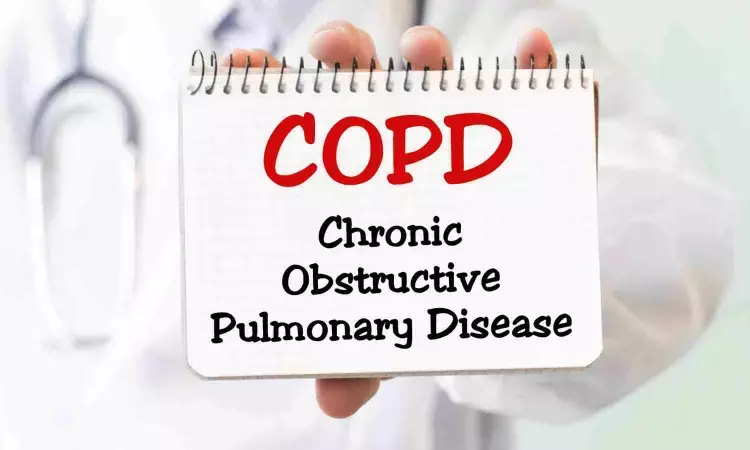- Home
- Medical news & Guidelines
- Anesthesiology
- Cardiology and CTVS
- Critical Care
- Dentistry
- Dermatology
- Diabetes and Endocrinology
- ENT
- Gastroenterology
- Medicine
- Nephrology
- Neurology
- Obstretics-Gynaecology
- Oncology
- Ophthalmology
- Orthopaedics
- Pediatrics-Neonatology
- Psychiatry
- Pulmonology
- Radiology
- Surgery
- Urology
- Laboratory Medicine
- Diet
- Nursing
- Paramedical
- Physiotherapy
- Health news
- Fact Check
- Bone Health Fact Check
- Brain Health Fact Check
- Cancer Related Fact Check
- Child Care Fact Check
- Dental and oral health fact check
- Diabetes and metabolic health fact check
- Diet and Nutrition Fact Check
- Eye and ENT Care Fact Check
- Fitness fact check
- Gut health fact check
- Heart health fact check
- Kidney health fact check
- Medical education fact check
- Men's health fact check
- Respiratory fact check
- Skin and hair care fact check
- Vaccine and Immunization fact check
- Women's health fact check
- AYUSH
- State News
- Andaman and Nicobar Islands
- Andhra Pradesh
- Arunachal Pradesh
- Assam
- Bihar
- Chandigarh
- Chattisgarh
- Dadra and Nagar Haveli
- Daman and Diu
- Delhi
- Goa
- Gujarat
- Haryana
- Himachal Pradesh
- Jammu & Kashmir
- Jharkhand
- Karnataka
- Kerala
- Ladakh
- Lakshadweep
- Madhya Pradesh
- Maharashtra
- Manipur
- Meghalaya
- Mizoram
- Nagaland
- Odisha
- Puducherry
- Punjab
- Rajasthan
- Sikkim
- Tamil Nadu
- Telangana
- Tripura
- Uttar Pradesh
- Uttrakhand
- West Bengal
- Medical Education
- Industry
COPD patients with severe disease and recent exacerbations more likely to continue chest wall oscillation therapy: Study

COPD patients having severe disease and recent exacerbations are more likely to continue chest wall oscillation therapy suggests a study published in the Respiratory Medicine.
High-frequency chest wall oscillation (HFCWO) is a form of airway clearance therapy that has been available since the mid-1990s and is routinely used by patients suffering from retained pulmonary secretions. Patients with cystic fibrosis (CF), neuromuscular disease (NMD), and other disorders, including bronchiectasis (BE) and COPD (without BE), are commonly prescribed this therapy. Limited evidence exists describing HFCWO use in the BE population, its impact on long-term disease management, and the specific patient populations most likely to benefit from this therapy. This study sought to characterise the clinical characteristics of patients with BE who have documented use of HFCWO at baseline and 1-year follow-up. An analysis from a large national database registry of patients with BE was performed. Demographic and clinical characteristics of all patients receiving HFCWO therapy at baseline are reported. Patients were stratified into two groups based on continued or discontinued use of HFCWO therapy at 1-year follow-up.
Results: Over half (54.8 %) of patients who reported using HFCWO therapy had a Modified Bronchiectasis Severity Index (m-BSI) classified as severe, and the majority (81.4 %) experienced a worsening in the prior two years. Of patients with 1-year follow-up data, 73 % reported continued use of HFCWO. Compared to patients who discontinued therapy, these patients were more severe at baseline and at follow-up suggesting that patients with more severe disease are more likely to continue HFCWO therapy. Patients who have more severe disease and continue to experience exacerbations and hospitalizations are more likely to continue HFCWO therapy.
Reference:
Basavaraj A, Choate R, Becker BC, Aksamit TR, Metersky ML; Bronchiectasis and NTM Research Registry Investigators. The severity of bronchiectasis predicts use of and adherence to high-frequency chest wall oscillation therapy - Analysis from the United States Bronchiectasis and NTM research registry. Respir Med. 2024 Mar;223:107555. doi: 10.1016/j.rmed.2024.107555. Epub 2024 Feb 1. PMID: 38307319.
Dr. Shravani Dali has completed her BDS from Pravara institute of medical sciences, loni. Following which she extensively worked in the healthcare sector for 2+ years. She has been actively involved in writing blogs in field of health and wellness. Currently she is pursuing her Masters of public health-health administration from Tata institute of social sciences. She can be contacted at editorial@medicaldialogues.in.
Dr Kamal Kant Kohli-MBBS, DTCD- a chest specialist with more than 30 years of practice and a flair for writing clinical articles, Dr Kamal Kant Kohli joined Medical Dialogues as a Chief Editor of Medical News. Besides writing articles, as an editor, he proofreads and verifies all the medical content published on Medical Dialogues including those coming from journals, studies,medical conferences,guidelines etc. Email: drkohli@medicaldialogues.in. Contact no. 011-43720751


